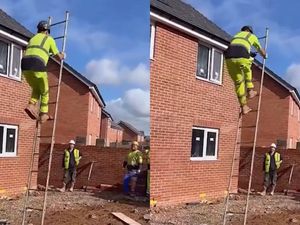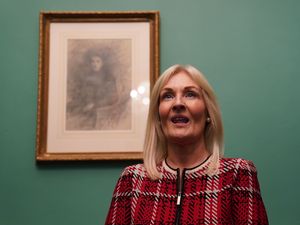MPs call for changes to coroners’ rules in response to Clonoe inquest
DUP leader Gavin Robinson said the coroner had to answer ‘where, when, who and how. He had no role in trying to answer the question as to why’.
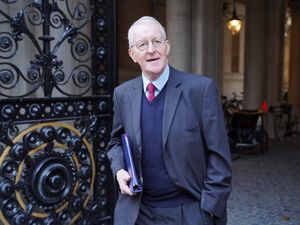
The Northern Ireland Secretary has urged “careful consideration” as MPs called for changes to coronial law in response to the inquest into the deaths of four IRA members.
Hilary Benn said the findings of the coroner were “very significant”, while Conservative former leader Sir Iain Duncan Smith said soldiers like himself “who never asked to go to Northern Ireland” will be “dragged in front of the courts” in the absence of the Legacy Act.
Last week, Northern Ireland’s presiding coroner, Mr Justice Michael Humphreys, found that British SAS soldiers did not have an honest belief in the necessity of using lethal force when they shot dead four IRA men in an ambush in Clonoe, Co Tyrone, in 1992.
Four Provisional IRA members – Kevin Barry O’Donnell, 21, Sean O’Farrell, 23, Peter Clancy, 19, and Daniel Vincent, 20 – were shot dead by the soldiers minutes after they had carried out a gun attack on Coalisland RUC station.
Shadow Northern Ireland secretary Alex Burghart said the four men killed in the Clonoe ambush “sought to kill, and they operated entirely outside the bounds of the law, and yet we are being asked to believe that the use of lethal force was not justified upon them”.
He continued: “I am not a lawyer, but if this is the state of the law, then the law is an ass, and it is up to Parliament to change it.
“What if this had not been on the streets of Tyrone? What if it had been on the streets of Birmingham? What if it had been in Parliament Square? Would we be asking why those men had not been arrested?”
Mr Burghart added that the “consequences of this ruling are potentially very severe” and would mean “more retired servicemen in their declining years dragged before the courts for trying to protect their countrymen from terrorists”.
The Labour Government has committed to repealing and replacing the Northern Ireland Troubles (Legacy and Reconciliation) Act which halted civil cases and inquests and proposed conditional immunity for perpetrators of Troubles crimes in exchange for their co-operation with a new truth recovery body.
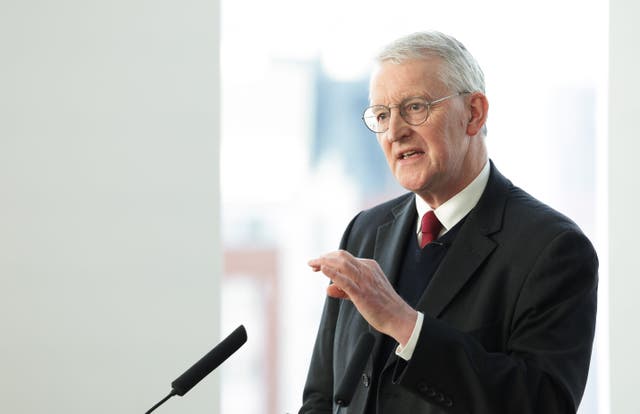
Mr Benn replied: “(Mr Burghart) did just say that if this is the law, the law needs to be changed, and I just wonder whether he is suggesting that the arrangements for inquests, the way they are conducted, coroner’s sitting, hearing the evidence and coming to a finding – is he suggesting that that ought to be changed?”
After nods from the Tory benches, Mr Benn said: “Well, that’s a very interesting observation from His Majesty’s Opposition.”
Mr Benn also highlighted that the Conservatives Legacy Act “would have given those very terrorists who were killed in the exchange of fire, if they had survived, the ability to secure immunity from prosecution”.
DUP leader Gavin Robinson said: “The Secretary of State rhetorically asked whether the law around inquests needs to change – the coroner had to answer four questions: where, when, who and how.
“He had no role in trying to answer the question as to why, but we know why.
“Four depraved terrorists, for the IRA and their warped ideology, tried to destroy society and kill in our country.”
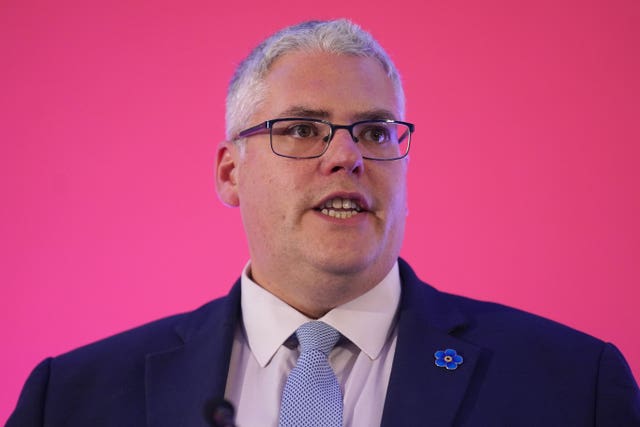
Mr Benn said Mr Justice Humphreys “was considering the facts of the case and came to an independent judgment about them”, and MPs are “perfectly free to express a view about what those findings are”.
He said: “If members are arguing that the coronial system applying to inquests right across the country should be changed, because there is a very great deal of feeling about this particular findings that this coroner reached, I think the House should give careful consideration before it goes down that road.”
Sir Iain said he was “astonished” by the coroner’s ruling and “getting inside the head of a soldier that is worried about whether they’re going to be shot dead is a very difficult case”.
He said: “I served in Northern Ireland, and some of the decisions you had to take were instantaneous. You didn’t have time to mull them over. They were either life or death.
“I lost a very good friend, Captain Robert Nairac, so the point that (Mr Benn) makes when he says the trouble with the last Legacy Act was that it gave immunity to IRA – they have had immunity, not just in letters of comfort, but the fact they kept no records, so they cannot be prosecuted.
“The only group that will be prosecuted will be soldiers like myself, who never asked to go to Northern Ireland, who went because we were told to protect civilians and to serve their country.
“They will be dragged in front of the courts because the Government seems not to care about them.”
Mr Benn said he does “absolutely understand and recognise the point he forcefully makes about the circumstances in which our soldiers found themselves as part of Operation Banner”.
“They’d seen their comrades killed. They don’t know what they’re going to face. These are very hard, and as he rightly says, split-second decisions the soldiers have to make in those circumstances,” he said.
Mr Benn added: “There were many, many, many members of the provisional IRA and the loyalist terrorist organisations who were prosecuted and tried, and convicted.”
In the coroner’s report Mr Justice Humphreys said the use of force by the soldiers was, in the circumstances they believed them to be, “not reasonable”.
He said that no attempt was made by the soldiers to arrest any of the members of the IRA unit, even as they lay seriously injured and incapacitated either on the ground or in the cab of the lorry.

